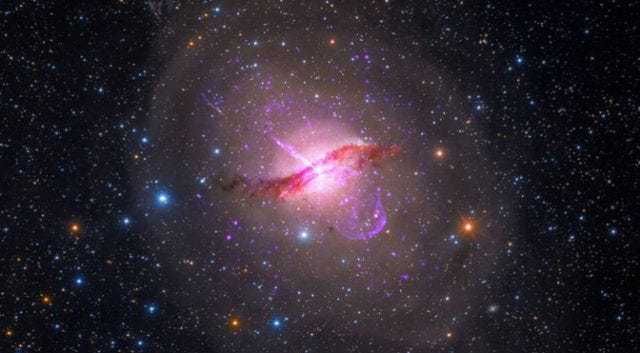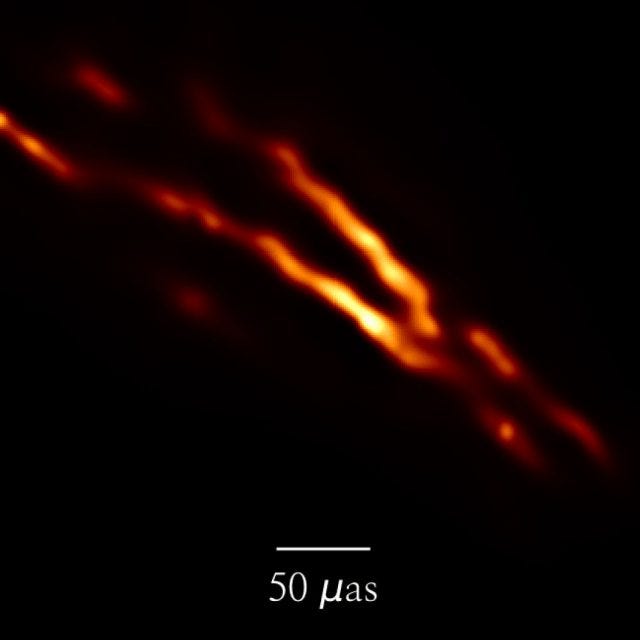# EHT Reveals Unprecedented Details of Black Hole Jets
Written on
Chapter 1: Historic Breakthroughs in Black Hole Imaging
Two years prior, the Event Horizon Telescope (EHT) achieved a monumental milestone by unveiling the first photograph of a black hole. This groundbreaking image validated numerous theories regarding these colossal collapsed stars. However, the EHT team's efforts did not conclude there. Their latest data focuses on Centaurus A, an active galaxy that has garnered attention in the astronomical community. While Centaurus A is a well-known bright spot in the cosmos, the new insights it offers are unprecedented.
The Event Horizon Telescope is not a singular device but a collaborative network of radio telescopes distributed globally. By synchronously observing the same cosmic object with each telescope, researchers can merge the data using atomic clock timestamps and extensive supercomputing resources. The assembly of EHT images is a time-consuming process, often spanning several months, yet the outcomes are remarkable. Observing M87's black hole would have been impossible with a lone telescope, and similarly, the details of Centaurus A have never been captured so vividly.
Section 1.1: The Significance of Centaurus A
Centaurus A is particularly noteworthy due to its active galactic nucleus. The central black hole is continuously consuming matter and emitting a relativistic jet into the vastness of space. This activity makes Centaurus A one of the closest galaxies bright in radio wavelengths and the fifth brightest galaxy overall, making it a frequent target for amateur astronomers.

Section 1.2: New Insights from EHT Observations
The EHT's recent images, while perhaps less visually striking at first glance, become incredibly significant when understood in context. The telescope has managed to focus on the plasma jet emanating from the galactic nucleus. Even from a distance of 10 million light-years, the level of detail captured is astounding.

These newly obtained images of the jet are 16 times more precise than any previous observations. The data suggests that only the edges of the jet are illuminated when viewed closely. Past analyses of other black hole jets hinted at a tubular structure, but these findings provide stronger validation. The precise cause of this glowing edge remains uncertain, though it may result from interactions with stationary gas clouds that heat and illuminate the edges.
Observations nearer to the black hole reveal that the jet narrows into a conical shape, although its base remains quite broad. This could imply that the accretion disk of the black hole serves as the energy source, but some scientists theorize that the jets harness the black hole's rotational energy to propel outward with such intensity. While the EHT has not resolved all the mysteries surrounding black holes, it is undoubtedly guiding us toward further understanding.
Chapter 2: Future Directions in Black Hole Research
For further reading: Stephen Hawking’s Black Hole Theorem Confirmed by Gravitational Waves; The Milky Way Might Have a Core of Dark Matter Instead of a Black Hole; New Image of Supermassive Black Hole Reveals Swirling Magnetic Fields.